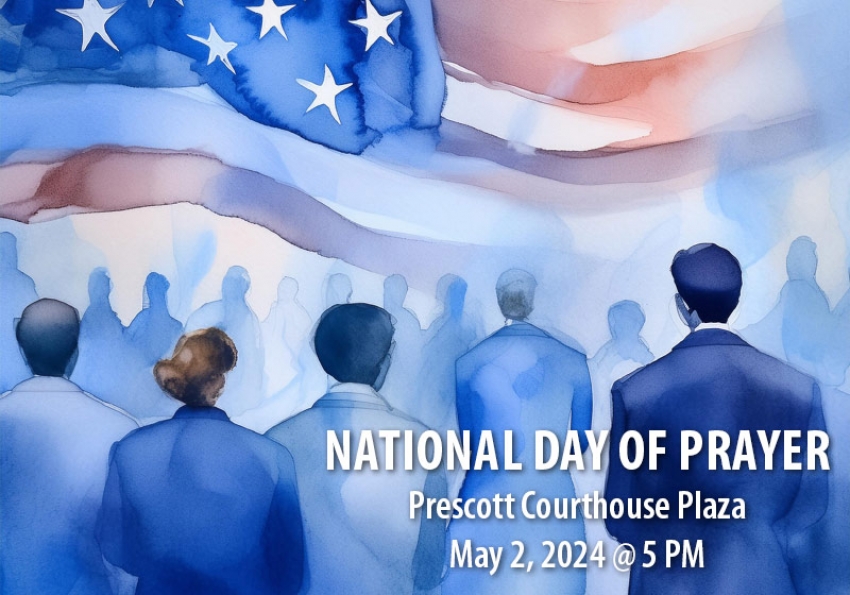Big Idea
- The City of Prescott historically has not utilized the Call to the Public in at least 30 years
- A Call to the Public risks Open Meeting Violations
- Some things never change - some complaints stay the same
- The City has very clear rules of conduct and procedures
- Read more...
'You can’t bring the Call to the Public back...'
During the course of this campaign, several candidates have spoken about “restoring the Call to the Public,” or “bringing back the call to the Public.”
That creates a question, because there doesn’t seem to be a precedent for ever having a general “Call to the Public” at the Prescott Council meetings. There have always been opportunities to stand up and comment or ask questions about individual agenda items, but not a Call to the Public.
Councilman Steve Blair is currently the longest sitting councilman in Prescott.
“You can’t bring the Call to the Public back, because it never happened,” Blair explained.
A Call to the Public is a time set in a public body’s agenda where people can come up and say what they want to say on any topic whatsoever. Most entities will limit the length of time a person can speak, and the scheduled time allotted to a Call to the Public. If there aren’t any limits, the Call to the Public can take a very long time.
The problem is that Arizona has some of the strictest Open Meeting laws in the country. If a topic is not on the agenda, in most cases, the council cannot dialog with the person making the comments.
For example, the Arizona Independent Redistricting Commission (AIRC) came to Prescott on Tuesday. They held a Call to the public, where close to 50 people spoke. The Chair smiled, but did not respond to any of their comments, as explained by this notice that was added to the agenda:

By the way, that Call to the Public for the AIRC lasted for 2 ½ hours. There were well over 100 people in attendance at the beginning, but at the end less than 10 remained.

What’s the Law?
A public body, such as the Prescott City Council, is not required to offer a call to the public, according to the Arizona Ombudsman’s Office.
“The open meeting law does not require that a public body offer a call to the public. The public has a right to attend meetings, not participate in meetings. Ariz. Att’y Gen. Op. 78-1. If the public body allows a call to the public, the public body determines when attendees may address the public body and may place time restrictions.
“In addition, the public body may not discuss or take action on matters raised during the call to the public that are not specifically identified on the agenda, but may respond to criticism, ask staff to review a matter, or ask that a matter be placed on a future agenda.”
In other words, in a Call to the Public, members of the public can get up and say something, but for the most part, the elected or appointed officials cannot answer or dialog back and forth.
Prescott Attorney Jon Paladini, who is often tapped by the Attorney General’s office to teach classes on Open Meeting Laws, does not think that a Call to the Public is a good idea.
On December 19, 2017, Paladini explained, “…The other issue is Call to the Public which the City of Prescott does not practice and it is highly recommended to avoid Calls to the Public. It tends to prompt discussion of a non-agenda item and could violate Open Meeting Law. The best practice is to only talk about the items that are agendized.”
Violations and Sanctions
Violations of Open Meeting Laws can have serious consequences. It can end in specific actions being declared void by the courts, or having to be properly ratified. It can also end in civil penalties for the individual elected officials for a knowing violation of the Open Meeting Law ranging from $500 - $2500 per offense, or even removal of the public officer from office.

https://www.azag.gov/sites/default/files/docs/agency-handbook/2018/agency_handbook_chapter_7.pdf, starting at page 7-29

Prescott’s Historical Approach
In going back 30 years, and shuffling through about 1000 City of Prescott Council meeting agendas, there is no sign of an open Call to the Public. What the City of Prescott did have in the past was an opportunity for members of the public to speak if it were arranged a week in advance. In the early 90’s, this notice appeared in every agenda:

Most of the time nobody asked to speak. But every once in a while, you would see a name or two, plus a topic. Some of the topics may even look familiar, like this one from 1994.

By 1999, this notice was not included in every agenda. It only appeared when someone had actually made the required arrangements to speak.
New Rules of Procedure
On December 19, 2017 http://prescottaz.iqm2.com/Citizens/FileOpen.aspx?Type=12&ID=1386&Inline=True the Prescott Council voted to update the Rules of Procedure for their meetings. Paladini explained, “Staff reviewed the Rules of Procedures and cleaned it up. The most notable item would be the time limit on public comment as well as the speaker card.”
Paladini noted that the Mayor has discretion and can expand or make exceptions if he chooses. He also noted that the shorter time limit can allow more people to speak on the issue.
The measure passed 6-1, with Councilman Goode in dissent. He voted against the bill because he believed a 3 minute time limit was too restrictive. He thought the time limit should be set at 5 minutes.
Can members of the public speak to the Council on any topic now?
Currently, a member of the public can join in the discussion about each individual item on the agenda. Their comments must be related to the topic. If they wish to speak on a topic that is not on the agenda, Sara Siep, the City Clerk, explains the procedure, “At this time we have a “Presentation Request Form” that we require citizens to complete if they wish to address Council on items not on the posted agenda. As you can see from the form we request two future Council dates that the requestor would like. [They] definitely would not have them on an agenda a week after they’ve requested presenting. The request is forwarded to the Mayor for approval or denial by our office and then we follow up with the requestor.”
There is also a process to petition the Council, which is in the City Charter (Article II, Section 18.)
Finally, members of the public can email or talk with individual members of the Council.
How would you change the policy? It would take a majority vote from the Council.
Links:
Council Rules of Conduct
Presentation Request Form
How to submit Advance comments
Other Public Bodies
Here are policies from other public bodies regarding the Call to the Public




























